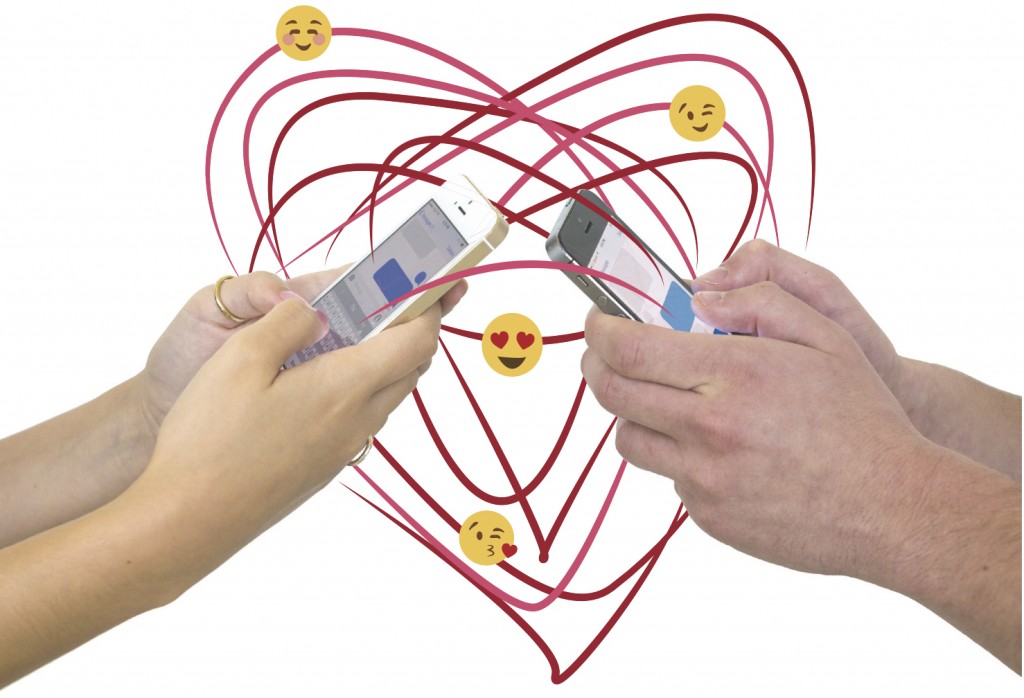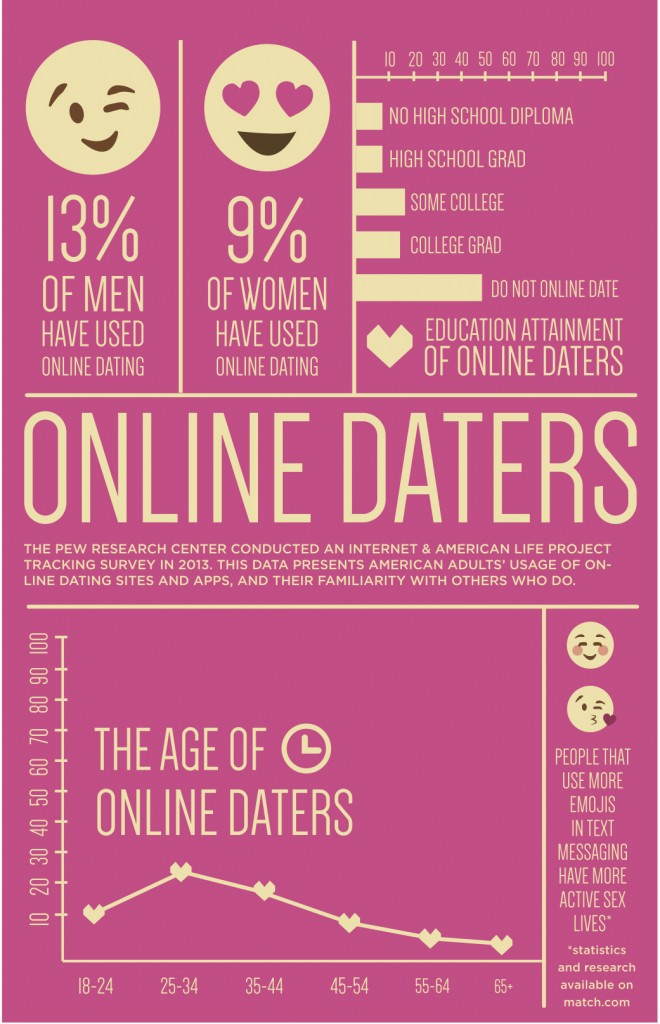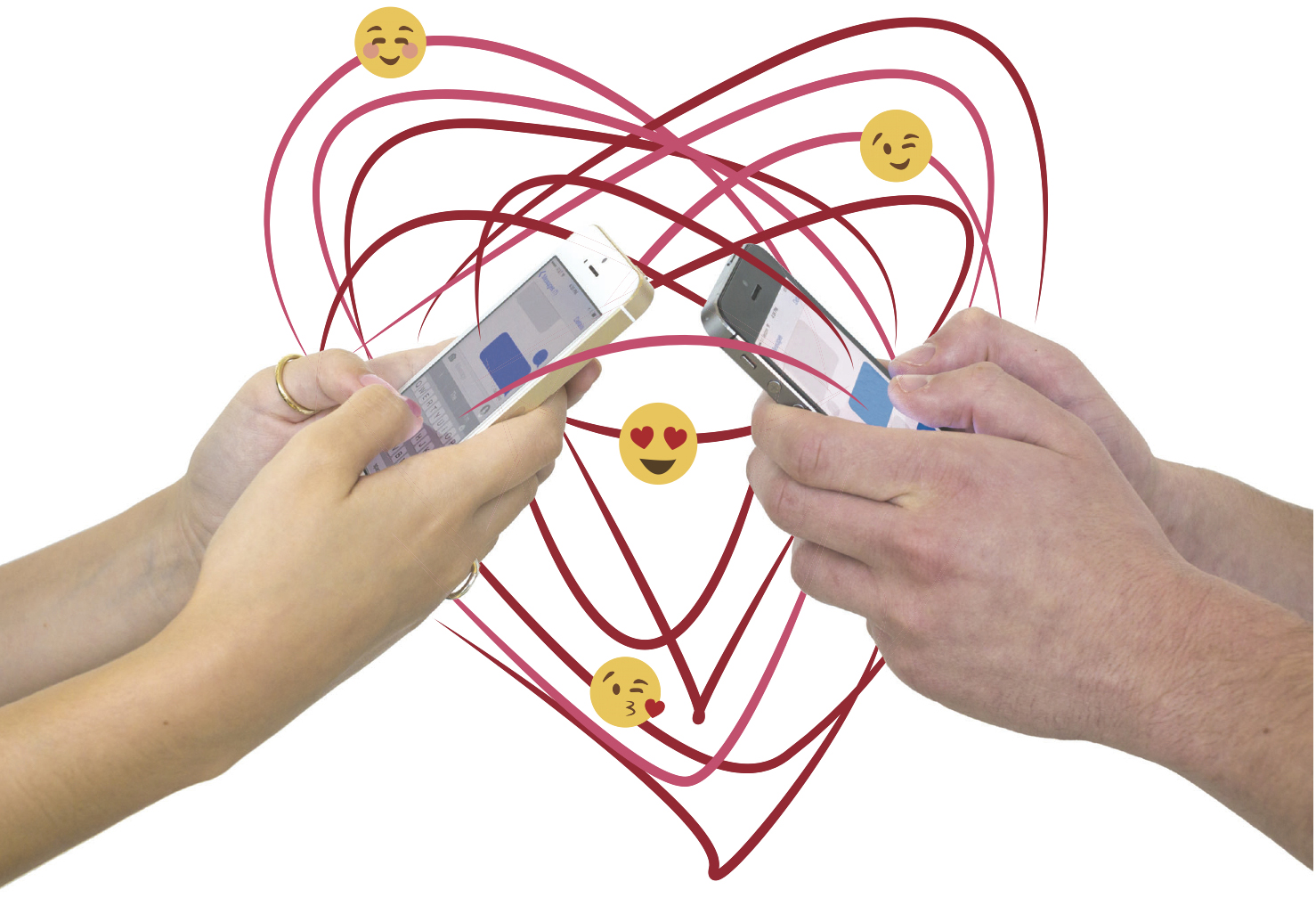
Good coffee tastes like shots of courage. Nicole Dasneves, a senior at the University of Miami, learned this when she found her boyfriend.
Dasneves would often see him at the Wellness Center after her dance class. Intimidated by his good looks, she couldn’t bring herself to talk to him.
“I used to be a bartender. Never in my life had I been nervous around a man,” she said.
Time dwindled as winter break neared. She told herself that if she didn’t build up the courage to say “hello” before heading home, she’d say “goodbye” to her crush forever.
Downing her shots of courage, Dasneves later saw him in passing, called out his name, and told him she’d love to take him to get coffee sometime. They’ve now been dating for a little more than a year.
But for college students less bold than Dasneves, dating and hookup apps like Tinder have become an ubiquitous way to find casual or serious relationships.
A study by the Pew Research Center showed that 38 percent of American adults who are single and actively searching for partners have used online dating sites or mobile dating apps.
An online poll of 118 people conducted by The Miami Hurricane revealed the same level of interest in online dating from UM students: 38 percent of respondents have either tried it or want to.
Acceptance of online dating and apps is on the rise as well. The Pew study found that 59 percent of Internet users believe that online dating is a good way to meet people – up 15 percent since 2005.
Hookup culture
Mobile apps have made meeting people easier than ever before. Tinder, in particular, has become the app of choice for those looking for a quick hookup – or even long-term relationships.
Of 81 UM students polled online who use dating apps, 78 percent said they use Tinder. At 12 percent, OkCupid was the second-most popular.
Tinder and the concept of hookup culture inspired the satirical “Swipe Click Bang” web series about one-night stands. The series is produced by Joseph Amato, Michael Vitale and Michael Sasso.
The series creators hope to show how relationships have evolved through technology, but still retain their core motivations. Amato said that whether you’ve found someone at the bar, in high school, at college or online, you’re still looking for the same thing.
“No matter how relationships come about or what circumstances bring you to where you are, what people are looking for doesn’t change through generations,” Amato said. “You’re looking for intimacy, you’re looking for a relationship, you’re looking for security.”
In today’s dating climate, the definition of “love” may even be changing, according to philosophy professor Berit Brogaard, author of the book “On Romantic Love.”
“I think people are starting to realize that there isn’t such a thing as ‘true love,’” she said. “There are many varieties of love and degrees of love. Even infatuation is a kind of love.”
With college students and adults growing busier, apps like Tinder become the go-to method for fitting relationships into packed schedules.
“This is one of the inevitable ways that we’re going to meet each other,” Vitale said. “Hookups are just a byproduct of all of us being more busy. Hookup apps are going to become more prevalent. That’s not good or bad, but it’s just how things are moving.”
A UM male senior suggested that hookups still keep college students busy, though. He wished to remain anonymous and is referred to as Brad Jones later in this story.
“The hookup culture is just as time-consuming as dating – especially if you’re doing it right and you have four different girls,” he said. “It kills a lot of time, though it might be emotionally easier.”
He thinks the real draw toward hookups is the excitement and number of options.
“When you’re a guy walking around campus, you’re constantly barraged with attractive women walking around you, and there’s an innate desire to have each of them,” he said.
Hiding behind a keyboard
Because Tinder offers little more than a name, picture, age and description of its users, senior Davis Sprague believes that the app’s appeal is that it gives people anonymity.
“It’s right on that brink of anonymity,” he said. “Unless you know the person who comes up, you’re essentially anonymous. So I guess it’s that feeling of, it doesn’t really relate to reality.”
This disconnect from reality, then, makes hooking up “almost like a game, so that eases the transition from ‘I’ve never met you’ to ‘let’s go hang out,’” according to Sprague.
The way people are relying on messages and apps to get to know each other worries Dasneves.
“You’re not going to know how to express yourself in front of someone; you’re only going to know how to express yourself through a keyboard,” she said.
Oftentimes, the way people end up expressing themselves on Tinder is vulgar and aggressive.
A recent UM graduate who uses Tinder said she experienced this, until she changed her profile photos and description to steer away those men. She asked to remain anonymous and is referred to as Sara Wilson later in this story.
“Some people are so ridiculous that I have to send screencaps to my friends, and some people are a lot nicer and I end up talking to them for a few weeks,” she said.
Traditional dating
Today, college students act like dating is a game. Dasneves said she sees this happen with all of her friends.
“A guy got your number but some unspoken rule someone created says you can’t text the girl for a day, and if the guy texts you, the girl needs to wait three hours to make it seem like she’s busy, and the guy does the same thing,” she said.

Brogaard said dating in college in her generation – back before social media – was also a challenge, but in a different way.
“If you met someone you liked outside of your network of friends and somehow forgot to exchange phone numbers, you were basically screwed,” she said.
Even if phone numbers were exchanged, obstacles still stood in the way.
“If the other person lived at home, you actually had to talk to their parents, most likely,” she said. “And you risked rejection big time because everyone knew that if you actually called, you were definitely interested in the other person.”
Social media has solved this problem for contemporary college students.
“I feel like the way that things are right now, as far as dating for our age group goes, people reach out to you first by texting you or Snapchatting you before taking the time to get to know you,” senior Courtney Wessel said.
According to Wessel, both guys and girls don’t take time to “properly” date anymore. She thinks the pressure of initiating dates shouldn’t lie solely on the guy.
“Sometimes it’s worth it for girls to be really forward and upfront about their expectations or making plans in general,” she said.
This strategy proved successful for Wessel at a party over winter break. When a guy approached her in a forward manner, she made sure he knew that a dinner date was a requirement before going any further.
Wessel doubted she’d hear back from him, but the next weekend he texted her and asked her out on a date.
“When he picks me up, he’s got a bouquet of flowers,” she said. “He got a tie, drove, opened doors, paid for stuff, the full-blown thing. It was super refreshing to be taken out on a normal date with someone your own age.”
Even Tinder can be used to initiate face-to-face dates and start long-term relationships. According to Wessel, a friend of hers met a guy on Tinder, and they’ve been dating for six months.
He plays Minor League Baseball and travels a lot, but when he visits, the two make plans to see each other in person.
For long-term relationships, people are finding what they’re looking for a lot faster than before, according to Sasso.
“You know what you want and start looking for those things in profiles,” Sasso said. “People are getting more efficient that way.”
Erasing the online stigma
According to Sprague, Tinder requires much less commitment than traditional online dating services.
Sprague’s roommate discovered this when, two years ago, his roommate decided it would be funny to make a Match.com account. He gave up halfway through after realizing how long it took.
“That level of commitment almost comes off as if you’re desperate for something – because you just can’t find anyone,” Sprague said. “Whereas with Tinder and those types of apps, because it’s a little bit less involved, you can say that … it’s not something you’re depending on.”
While online dating services seem to be surrounded by stigmas, that is changing over time. The Pew Research Center survey showed that the number of people who think people who use online dating are desperate fell by eight percent from 2005-13.
“When they first started to pop up, finding someone there was taboo,” Brogaard said. “People would lie about how they met. Now, it’s perfectly acceptable to find someone on a dating site.
Wilson prefers Tinder to dating websites because she thinks there’s less of a stigma.
“I went to my dad’s cousin’s wedding, and she’s 57 years old and found someone on eHarmony,” she said. “I have this idea [that online dating] is for old people. I feel like I couldn’t find a young person or someone like me.”
At the same time, Wilson felt that Tinder has become her only option. Since graduating in December, she lives with her parents – not an ideal arrangement for meeting new people.
She now lives far from her friends at UM, so she uses Tinder to find potential long-term relationships. There are alternatives to Tinder aimed at serious relationships, like Hinge, which matches users with friends of friends, but they are unavailable in Wilson’s area.
“If you’re on Tinder looking for a serious relationship, you’re probably just going to get frustrated because the vast majority that you talk to are going to be looking for something totally different,” Jones said. “So why not go to a pool of fish that are thinking the same way you are?”
Demographics of online daters
People who know someone who online dates
Interactive infographics by Luke Pukatch. Source: Pew Research Center
Alina Zerpa contributed to this report.






